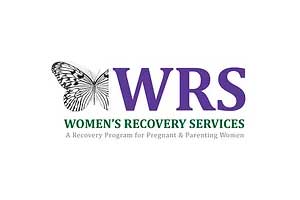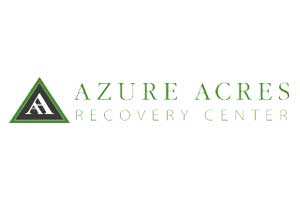
3020 Warm Springs Road
Glen Ellen, CA. 95442
707-996-6716
Glen Ellen, CA has several nearby treatment choices including: 1 medicare treatment center, 2 inpatient rehab centers, 3 drug rehabs that take private insurance like Aetna, 2 detox centers, 2 outpatient treatment programs.

For help finding an addiction treatment center, Call us!
All calls are 100% confidential and free
1-877-882-9275


Womens Recovery Services is 11.1 miles from Glen Ellen, California


Drink/Link Moderate Drinking Prog and is 11.3 miles from Glen Ellen, CA
Drink/Link Moderate Drinking Prog and has made a name for itself by dedicating its addiction services to the individuals who struggle with drug and alcohol abuse issues in the Glen Ellen, California area.
Services are provided on an individualized basis to make sure clients achieve full recovery in the long term. Drink/Link Moderate Drinking Prog and also specializes in dual diagnosis drug rehab, motivational interviewing, individual psychotherapy, cognitive/behavior therapy, rational emotive behavioral therapy, substance abuse counseling approach, and others - as well as other treatment modalities such as self-help groups, social skills development, active duty military, aftercare/continuing care, persons with eating disorders, substance abuse education, and more.
Additionally, Drink/Link Moderate Drinking Prog and has programs such as outpatient detox programs, long term rehab facilities, inpatient drug treatment, intensive outpatient treatment, short term drug and alcohol rehab facilities for verifiable addictions to alcohol and drugs. The alcohol and drug rehab program uses treatment methods that can provide lasting and permanent stability to anyone with an alcohol and drug use issue. Finally, Drink/Link Moderate Drinking Prog and accepts individuals with different types of payment methods - including cash or self-payment, private medical insurance, medicaid, medicare, military insurance, state education funds, county or local government funds and others.



Azure Acres Recovery Center is 11.5 miles from Glen Ellen, CA
Azure Acres Recovery Center has made a name for itself by dedicating its recovery services to the individuals who struggle with alcohol and drug use issues in the Glen Ellen, California area.
Programs are offered on an individualized basis to ensure people achieve full recovery in the long term. Azure Acres Recovery Center has also specialized in dual diagnosis drug rehab, motivational interviewing, individual psychotherapy, cognitive/behavior therapy, rational emotive behavioral therapy, substance abuse counseling approach, and others - as well as other treatment modalities such as self-help groups, social skills development, active duty military, aftercare/continuing care, persons with eating disorders, substance abuse education, and more.
Additionally, Azure Acres Recovery Center has programs such as inpatient detoxification centers, long term drug and alcohol rehab facilities, inpatient treatment programs, outpatient individual counseling, short term rehabs for clients with addictions to alcohol and drugs. The drug and alcohol rehab program uses treatment methods that can provide lasting and permanent stability to anyone with an alcohol and drug abuse disorder. Finally, Azure Acres Recovery Center accepts clients with different kinds of payment methods - including private pay, private health insurance, medicaid, medicare, military insurance, state education funds, county or local government funds and others.
Drug addiction can significantly distort a person's thinking patterns and perceptions, leading them to behave in ways that are often self-protective and defensive. One of these behaviors can be a tendency to shift blame onto others. This occurs for a few reasons:
"The Cognitive Behavioral Method, or Cognitive Behavioral Therapy (CBT), is an evidence-based psychological approach for treating addiction that focuses on identifying and modifying dysfunctional thought patterns, beliefs, and behaviors that contribute to substance use disorders. CBT is grounded in the understanding that an individual's thoughts, feelings, and behaviors are interconnected, and by changing maladaptive thought patterns and behaviors, they can better manage their emotions and reduce their reliance on addictive substances.
CBT for addiction treatment typically involves the following key components:
CBT for addiction treatment can be delivered in individual, group, or family therapy settings and is often used in conjunction with other treatment modalities, such as medication-assisted treatment (MAT), peer support groups, or motivational interviewing. CBT has been found to be effective in treating various substance use disorders, including alcohol, opioid, and stimulant addiction, as well as co-occurring mental health disorders, such as anxiety and depression."
"Paying for addiction treatment can be a significant concern for individuals and families seeking help. However, there are various options available to help cover the costs, making it more accessible to those in need. Here are some common ways to pay for addiction treatment:
National Non Profit Helpline - 1-877-882-9275
Our National Non Profit Helpline is a 24/7, 365-day-a-year treatment referral and information service for individuals and families faced with mental and/or substance use disorders.
All calls are strictly confidential
Our service provides referrals to licensed treatment facilities, support groups, and community-based organizations. You don't have to struggle alone with addiction. Help is just a phone call away. Call 1-877-882-9275 now to get the help you need and deserve.
© Copyright 1998 - 2022 All Rights Reserved. Content is protected under copyright laws, do not use content without written permission.